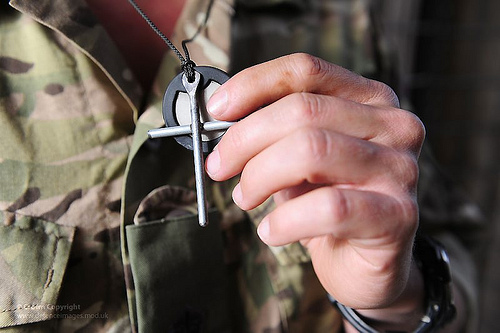 I’ve been reading operational research on the psychology of combat recently. It got me to thinking about the role of religious faith in morale of soldiers. I’m not personally religious and don’t have an axe to grind on this. What I am trying to do is build a game design model that properly accounts for relevant factors.
I’ve been reading operational research on the psychology of combat recently. It got me to thinking about the role of religious faith in morale of soldiers. I’m not personally religious and don’t have an axe to grind on this. What I am trying to do is build a game design model that properly accounts for relevant factors.
The thought that struck me was that combat is very stressful and that soldiers are called on to do unpleasant things to others. This isn’t an every day thing but it does happen. The after effects can be very severe, PTSD isn’t pleasant for anyone and can last for years after the traumatic events have finished. Psychological casualties are as real as the physical ones, they just have a delayed onset and are harder to spot.
Faith in Morale
Looking at rational human reactions in combat and life threatening situations you can see that the belief system of the individual plays a strong part. If you read first hand accounts enough you begin to understand this. Heroes often do what they do because they don’t see other options that they find acceptable. People run into burning buildings or stay at a point of danger to help others. A selfish rational view would get you out of there. This often comes down to helping other members of the in group, not letting others down or not being able to live with themselves if they hadn’t tried to help. It is rare to hear patriotism cited, although often modestly you’ll hear ‘I was just doing my job’. That last is rarely true from a technical perspective but it reveals that the person that said it was driven by their belief system.
You’ll have noticed that I’ve been writing about a belief system here rather than faith. That’s deliberate. Faith is a kind of belief system but isn’t all of it. Everyone has a belief system, even atheists. Not everyone has faith.
They are a product of our upbringing and life experiences. Religious faith has a major part in shaping them, as does the dominant culture in the society that we live in. Even those that consciously reject those are shaped by it in their rejection.
Some examples. Homophobia is driven by belief systems. The dominant culture in the UK has taught us that it is a bad thing. Some religious groups disagree, and there is a high level of support far that point of view from the older members of society and those that have arrived from other cultures that don’t share the same belief as our dominant culture. In the main the driver for homophobia is the classic out group of psychology. Humans form groups of similar outlooks and turn against other groups. It’s animal instinct and manifests in many places and in many ways. Civilised humans learn to control the behaviour it drives and accept that other people (mostly) aren’t a threat. Being indoctrinated from birth into thinking about things makes this much easier.
Back to combat. The fundamental beliefs that go on here are about harming others and self preservation. Religion tends to have a view on both of these. Typically it is don’t harm others and you need to make earthly sacrifices for a heavenly reward.
The combat calculus every combatant goes through is pretty much ‘does the risk to me outweigh the benefits of what I’m doing?’
If you are an atheist with no belief in an afterlife then you aren’t going to be as keen on checking out as someone expecting a massive reward for furthering the cause of their chosen religion (and it is the individual combatant’s interpretation that counts here, not the orthodox view).
So perhaps you get something like this:
| Belief |
harm to others |
self-preservation |
Overall result |
| Atheist |
Only if its within the rules of engagement |
I don’t want to die |
Avoids taking risks where possible, but is ready to kill to do the job at hand. Unlikely to operate outside the rules of engagement lest there is an earthly punishment. |
| Humanist |
Do unto others as you would have done to yourself |
I don’t want to die |
Kills only when there iis no alternative. Will stay well within the rules of engagement as it is what their belief system demands. Won’t take unnecessary risks but will do what they can to help others. |
| Orthodox Christian/Muslim |
Killing is wrong, but God accepts that sometimes it is necessary. |
I don’t want to die yet, but there will a reward in the afterlife if I do good work. |
As with the Humanist avoids harm to others, but if it him or me will kill the enemy. Will self-sacrifice to save/help others but tries where possible to preserve their ability to continue to act. |
| Religious Fanatic |
God wants me to kill unbelievers |
If I do God’s work I will be rewarded in the after life. |
Disregards personal safety to achieve the mission objective (which implictly includes doing what God demands and converting or killing the unbelievers. |
Let me know what you think in the comments thread.
Related articles
Like this:
Like Loading...

















